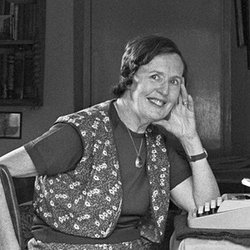This is a novel about the lives and loves of a group of anthropologists at a London institute. For those who have to have a label perhaps we can call it a comedy of manners like Antony Powell’s ‘Dance to the Music of Time,’ the token that defined the type.

Tom, Deirdre, Digby, Catherine, Miss Clovis, Mark, Professor Mainwaring, Alaric, Rhoda, Professor Fairfax, Mrs Foresight, and others make a living sharply observing primitive peoples in Africa, while unconsciously acting out the same rituals in London. That makes it sound more didactic and pedantic than it is, but the cumulative effect is to observe the observer.
Only the visiting scholar, Frenchman Jean-Pierre, makes a point of observing and cataloguing English ways just as he would in the heart of Africa. Though he is unfailingly polite and far more considerate of others than any of his hosts, they regard him as odd.
The professional rivalries and jealousies all ring true but are played out with a polite formality. In all the author has a light hand.
The rituals of the off-print, when it still existed, are amusingly set forth. So that is what one was supposed to do with them, I said to myself! My collection of them grew to occupy a filing cabinet and I put them in a yellow recycling bin when I left the Merewether Building. I wonder what the ritual is now with PDF versions? No idea.
The centre of this little drama is Tom Mallow who is devastatingly attractive to women, which he takes for granted in a vague way as he ricochets from one to another, barely noticing the differences from Elaine whom he absent-mindedly jilted a few years before, Catherine who was mother and wife to him without the benefit of law, and Deirdre whose cow-eyed veneration warms him. Digby and Mark circle around in the hope of leftovers.
He is also the golden boy at the Institute, though he never seems to finish anything. That omission does not diminish his glow.
Alaric who has never published anything, though he treasures dozens of tea chests full of field notes, devotes his considerable energies to writing caustic reviews of the books others dare to publish. He never has a good word to say. Still less when book review editors sometimes alter his prose to make it less venomous. That elicits another war of words between Alaric and the offending editor.
All of this seems true to life, if from an earlier time.
One of the themes is the way we have of idealising and wanting the life that others have. The urban, educated, worldly Londoners pine for the suburban calm, snug family life of the provinces. The provincials lust after the allure of London and resent the claustrophobia of the Sunday lunch en famille. It sounds leaden when I write it but in the book it is a feather on wind, conspicuous yet ephemeral yet entertaining to watch.
Spoiler alert!
Tom, chronically vague and oblivious of his surroundings, absent-mindedly gets himself killed and Deirdre discovers that she recovers from the shock of the news of the death of this demigod in a few hours. Digby is so amusing. Catherine convinces Alaric to burn his field notes and so free himself of the burden they have silently imposed on him all these years. Professors Mainwaring and Fairfax begin another tug of war over a new golden boy. Miss Clovis shelves Tom’s thesis and goes to tea. Gone and forgotten in a very few minutes.
I first read it sometime in the latter 1980s or early 1990s and the volume came to light again in the course of moving to the new abode. At that earlier time I had meant to read more by Pym, but failed to do so. I will try to do better this time around and I have plunked another of her titles in my Amazon basket.
Pym wrote a number of such novels but then fell out of favour. She kept writing them but her publisher decided she was old fashioned and stopped taking them. Her efforts to find another publisher failed for the same reason: fashion, or the perception of fashion, from the editorial desk. Then in the later 1970s some literary lions (re)discovered her, and her books came back into print…to stay. I expect the editors who rejected her work were paid handsome bonuses for such insight, but their names are now forgotten.
 Barbara Pym at work.
Barbara Pym at work.
She, by the way, was crushed by the rejection. This all from Wikipedia.
Skip to content
